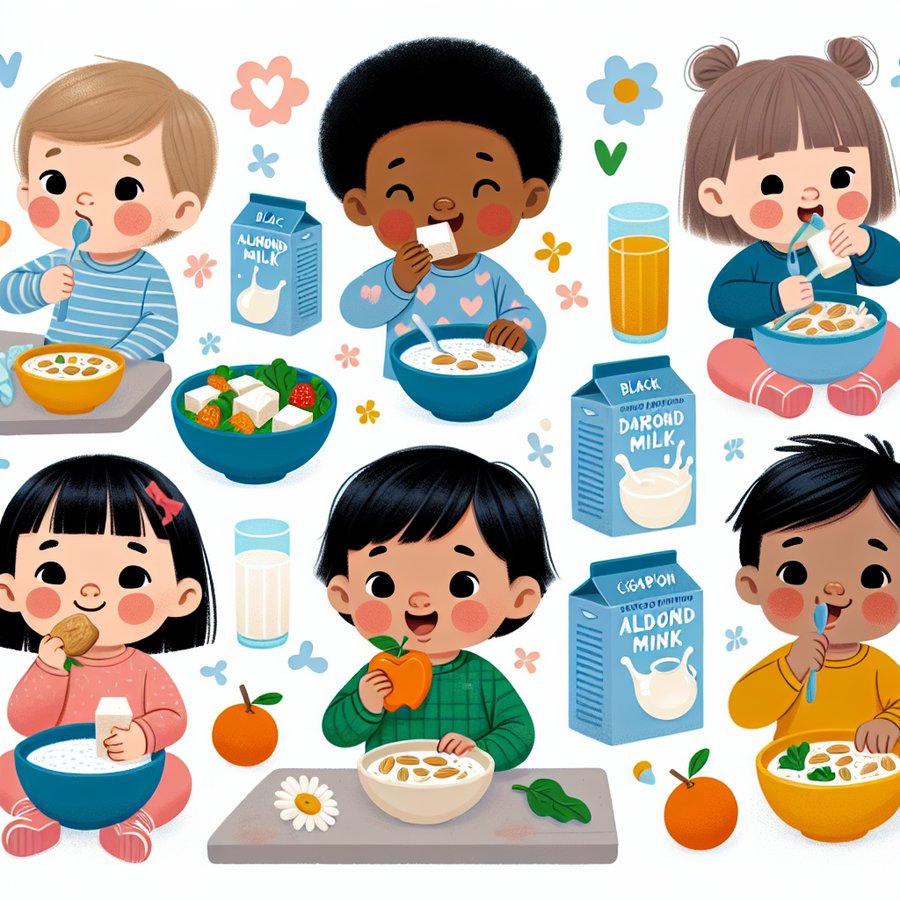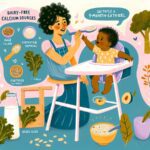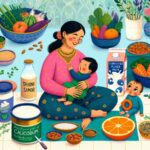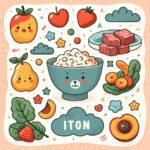Finding calcium sources for dairy-free toddlers can seem challenging at first, but there are plenty of nutritious alternatives available to ensure your child’s growth and development are on track. Calcium is crucial for building strong bones and teeth, and its importance cannot be overstated, especially in the early years of a child’s life.
Understanding Calcium’s Role in Toddler Development
Calcium plays a pivotal role in the development of strong bones and teeth in toddlers. It also supports nerve function, muscle contraction, and blood clotting. However, for toddlers with dairy intolerances or vegan diets, finding adequate calcium sources can be a concern for many parents.
Fortunately, there are numerous dairy-free alternatives rich in calcium that can help. Ensuring a balanced diet that includes these alternatives is key to supporting your toddler’s development. National Institutes of Health suggests that with the right dietary choices, dairy-free toddlers can meet their calcium needs without any issues.
Calcium Sources for Dairy-Free Toddlers
Let’s delve into the heart of the matter and explore the various calcium sources for dairy-free toddlers. Parents often worry about their dairy-free toddlers not getting enough calcium, but many foods can serve as excellent sources.
Some notable calcium-rich, dairy-free foods include fortified plant-based milks (such as almond, soy, and oat milk), green leafy vegetables like kale and broccoli, almonds, sesame seeds, tofu, and figs. Incorporating these foods into your toddler’s diet can make a significant difference in their calcium intake.
Additionally, exploring recipes and meal ideas that include these ingredients can be a fun and engaging way to ensure your child enjoys their meals while getting the necessary nutrients. For more insights on nutritional needs and meal planning for dairy-free toddlers, consider reading our article on Vegan Baby Nutrition Plan for the First Year.
Enhancing Calcium Absorption in Dairy-Free Diets
While identifying calcium sources for dairy-free toddlers is crucial, ensuring optimal absorption of this mineral is equally important. Factors such as the presence of vitamin D and certain dietary habits can influence calcium absorption.
Exposure to sunlight is a natural way to boost vitamin D levels, which in turn helps the body absorb calcium more effectively. Additionally, incorporating foods rich in vitamin D, such as mushrooms and fortified cereals, can be beneficial. Avoiding excessive intake of oxalates (found in foods like spinach and rhubarb) and phytates (present in whole grains and beans) can also aid calcium absorption.
For parents looking for more comprehensive guidance on meeting their toddler’s nutritional needs, our article on Essential Vitamins for Baby Growth and Development offers valuable information. Ensuring a balanced diet that facilitates calcium absorption will support your toddler’s overall health and development.
To sum up, finding calcium sources for dairy-free toddlers is not only possible but can be easily achieved with a little knowledge and creativity in meal planning. By incorporating a variety of calcium-rich foods into their diets and ensuring optimal conditions for calcium absorption, parents can confidently support their toddlers’ growth and development without the need for dairy products.
For more tailored advice and tips on raising a healthy, dairy-free toddler, consider exploring articles in our library such as Dairy Alternatives for Toddlers with Lactose Intolerance and Best High-Calorie Foods for Underweight Toddlers.













